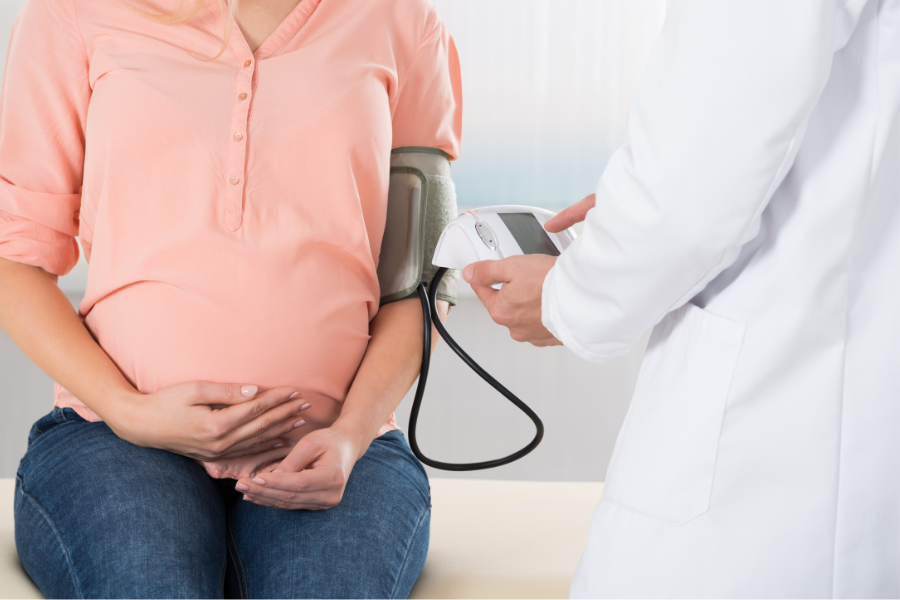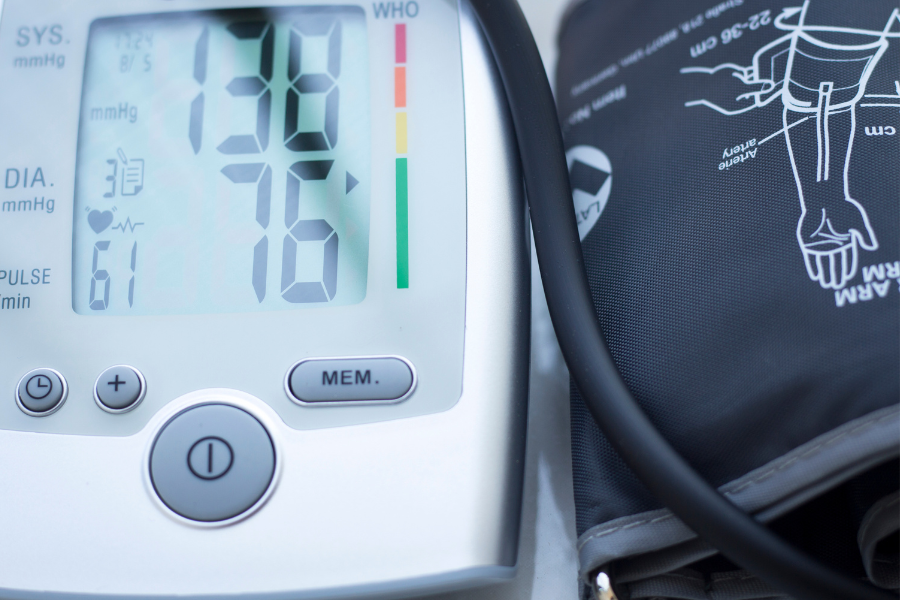AHW Health Research Grant Funding Supports Postpartum Hypertension Treatment Study
August 25, 2023 Posted by Jesse M. Ehrenfeld, MD, MPH

Hypertension–or high blood pressure–is a common health condition affecting approximately one in three Wisconsin adults and one that can cause serious health issues. For pregnant women, hypertensive disorders of pregnancy (HDP) are especially dangerous, with the potential for complications including preeclampsia with very high blood pressure and other health problems, such as kidney injury or liver injury, eclampsia, stroke, or placental abruption, as well as preterm birth or low baby birth weight.
HDP can continue after pregnancy, predisposing postpartum mothers to long-term cardiovascular disease, chronic hypertension, stroke, and heart disease. Without proper care throughout and after their pregnancies, women with HDP are at risk for life-long health issues.
With $200,000 health research grant funding from AHW, Medical College of Wisconsin (MCW) principle investigator Anna Palatnik, MD (Obstetrics and Gynecology), and co-investigators Jacquelyn Kulinski, MD (Medicine), and Amy Pan, PhD (Pediatrics), are exploring how providers can improve postpartum hypertension treatment to help all mothers in Wisconsin and elsewhere live longer and healthier lives.
Why Postpartum HDP Research is Critical
In Wisconsin, the percentage of women with HDP is more than double the national average, making HDP a significant public health issue in our state (according to the Wisconsin Association for Perinatal Care).
In most cases, HDP resolves on its own shortly after birth. Therefore, currently, postpartum treatment of mild hypertension is not recommended. However, many women who experience HDP don't see their blood pressure normalize so quickly. Some may remain hypertensive for up to one year.
According to Dr. Palatnik, "The devastating part of hypertensive disorders of pregnancy is the higher risk of premature coronary heart disease and things like heart failure that can occur as soon as ten years after a preeclamptic pregnancy, and sometimes earlier. We think that if we are more aggressive with blood pressure control in these women earlier on, we can change the trajectory of their future risk of cardiovascular disease."

Addressing Racial Inequities in HDP Treatment and Outcomes with AHW Health Research Grant Funding
Without standardized guidelines for postpartum hypertensive treatment, there can be variations in patient treatment, especially for those of racially or ethnically diverse backgrounds. There are substantial disparities in HDP-related morbidity and mortality that are higher among Black patients, which are particularly notable during the postpartum period.
The research team hopes to reduce the variation in care and inequities in HDP treatment by providing evidence for standardizing postpartum blood pressure management.
Investigating the Effects of Tight Blood Pressure Control on Postpartum Mothers
The MCW research team has made significant progress one year into their two-year AHW-funded project.
Following the delivery of their babies, 30 study participants were assessed for vascular function via ultrasound and additional imaging of their blood vessels with the help of MCW Cardiovascular Center and Cardiovascular Academic Initiative. They also provided blood samples, which will be used to analyze certain markers of heart disease in the future. Researchers are focusing on vascular function in this study, as monitoring for stroke or chronic tension would require decades-long research, and vascular function measure is a timelier measure and a good indicator of future cardiovascular risk.
After giving birth, each study participant was provided with a blood pressure cuff and a smartphone app to record her blood pressure. Using a free short-messaging service, participants provided their readings, reported symptoms, and received feedback.
In addition, after giving birth, half of the participants underwent an intensive care treatment plan. The other half received routine postpartum care, where it was at their obstetrician-gynecologist's discretion to monitor blood pressure and potentially treat it. Patients were checked at six weeks postpartum and again at six months.
Dr. Kulinski stated, "We hypothesize that tight blood pressure control postpartum will improve vascular endothelial function, a surrogate marker for future cardiovascular disease risk. Some postpartum women will have masked hypertension, which means they have normal blood pressure in the clinic, but are hypertensive at home or work. Hypertension is associated with elevated risk of cardiac events, so the fact that we might be uncovering some of these women with masked hypertension that are getting missed in a clinical setting is novel."

Research Discoveries and Observations
An essential factor of the project's success thus far has been the positive collaboration experience among the various departments and programs involved in the research.
"It's been nice to see how well the multidisciplinary team works together. Cardiology coordinates the vascular imaging and ultrasounds; The Quantitative Health Sciences Center ensures our study design is sound; and the Translational Research Unit made it easy to coordinate it all," said Dr. Palatnik.
The research team has also observed that patients showed a positive interest in participating. "It's good to see that women are interested in this topic. When we're consenting these postpartum women to participate, they're also learning, sometimes for the first time, that preeclampsia is a risk factor for future cardiovascular disease, which many women don't know," shared Dr. Kulinski.
AHW health research grant funding has allowed the researchers to avoid some of the common struggles when working with new mothers. Dr. Palatnik said, "It can be challenging enrolling new patients: They just had a baby, and you're asking them to come in at six weeks and six months postpartum. But AHW funds helped us provide childcare and transportation for the participants, where other studies would require them to make their own arrangements."
What's Next for the Project
The project researchers hope this work will contribute to a change in culture, where postpartum hypertension is taken more seriously. Following the conclusion of their AHW-funded work, the team will pursue larger-scale National Institutes of Health funding, allowing them to enroll more patients and provide more education and resources for participants.
As Dr. Kulisnki said, "If we see dramatic improvements and women are treated more aggressively than compared to the current standard of care, that would be huge."
To learn more about all of our funded projects, click here.




